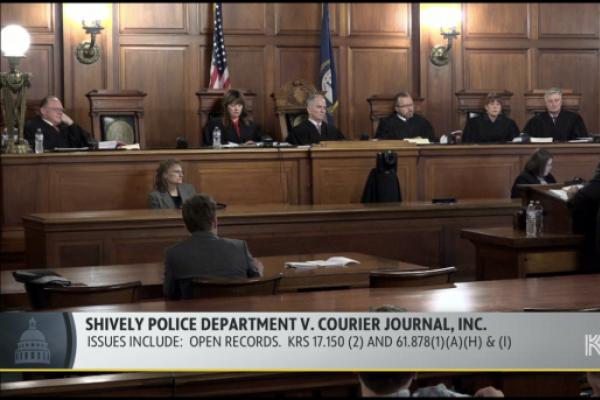
Open records question of the day.
A Facebook friend asks:
"I received open records around the bid to purchase land declared surplus from the Owensboro- Daviess County airport. One of the bidders included the note shown in the picture that their bid was exempt from open records release. The submitter for this company was the former Owensboro city attorney, so I assume he would be knowledgeable around open records. Was the airport wrong in providing me the bid documents after the award was made?"
Our response:
In a word, no. Bid documents, in general, are open to public inspection after bids are open and a contract awarded. There are occasions when some bid materials are designated "confidential" or "proprietary," but merely designating them as such does not make them confidential or proprietary.
Although details are scant, it seems likely that the person (former city attorney) asserting that the materials were exempt from public inspection as "proprietary" offered no written justification/explanation for this characterization (and we can think of none in this context). Or it is possible that if a justification/explanation was offered, the airport that released the materials did not believe it could defend—or in good faith make—the argument that the materials were proprietary in the event of a legal challenge. All who submitted bids, especially the former city attorney, knew that they were dealing with a public agency and their submissions were public records. The airport discharged its duty to release all bids after they were opened. Again, just saying records are exempt doesn't make it so.
The only caveat: the airport might have notified the bidder that it intended to disclose the records for which the bidder had claimed exemption and permitted the bidder to assert a claim for nondisclosure in the appropriate Circuit Court under Beckham v Jefferson County Board of Education, but the open records law itself does not specifically require this.
https://law.justia.com/cases/kentucky/supreme-court/1994/93-sc-967-i-1…
If a simple request/demand that public records be kept confidential was sufficient to conceal public records, few accessible public records would remain. A promise of confidentiality is *only* "enforceable" if it is supported by an exception to public inspection found in the open records law or a separate state or federal confidentiality statute.
And for what it's worth, attorneys are not omniscient. I make no claims to being an authority on city lawð



